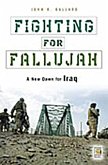In this book, the Bush administration's war in Iraq is assessed using an interdisciplinary approach and historical analysis that will help readers better understand the results of the U.S. counterinsurgency doctrine from 2003 to the present. Contesting History: The Bush Counterinsurgency Legacy in Iraq uses a comparative analysis of history to assess the Bush administration's actions in Iraq, focusing specifically on the policy of counterinsurgency. Insurgency exists within an extended timeframe and exhibits a global reach, argues comparative warfare expert Matthew J. Flynn. Therefore, understanding this phenomenon is best realized through an examination of guerrilla conflicts around the world over time; this book provides that approach. The work analyzes U.S. counterinsurgency doctrine during the Iraq War from 2003 to the present, and offers relevant historical comparisons to conflicts dating back to the mid-19th century, in which a nation enjoyed marked military superiority over their enemy. In doing so, it encourages readers to link the Afghanistan and Iraq wars in the broad context of the utilization of counterinsurgency operations to achieve policy objectives. Ultimately, the book illustrates how the tactical "military" success of the U.S. surge in Iraq still nets a strategic failure.









